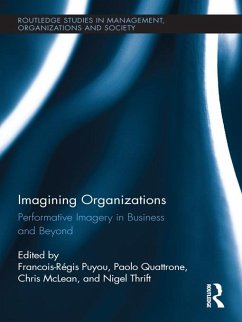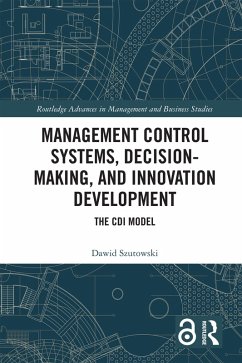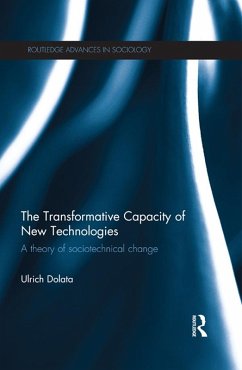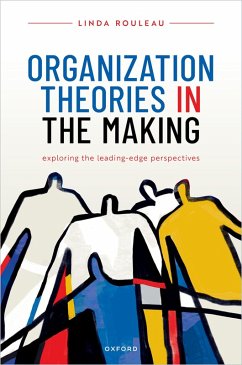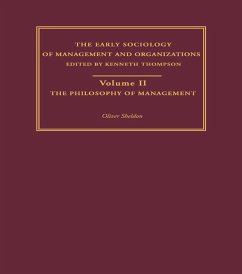
Transformative Management Education (eBook, PDF)
The Role of the Humanities and Social Sciences
Versandkostenfrei!
Sofort per Download lieferbar
39,95 €
inkl. MwSt.
Weitere Ausgaben:

PAYBACK Punkte
20 °P sammeln!
Due to the recent global financial crises, academic business schools have come in for much criticism, having, in the eyes of the public, failed in their responsibility to society by teaching future managers only how to increase their personal gain without any consideration as to their actions' social and cultural consequences. Realising that there is a pressing need to innovate their educational offers accordingly, business schools are beginning to turn to the humanities and social sciences to improve on the understanding and thus the teaching of management.This book is the result of an empiri...
Due to the recent global financial crises, academic business schools have come in for much criticism, having, in the eyes of the public, failed in their responsibility to society by teaching future managers only how to increase their personal gain without any consideration as to their actions' social and cultural consequences. Realising that there is a pressing need to innovate their educational offers accordingly, business schools are beginning to turn to the humanities and social sciences to improve on the understanding and thus the teaching of management.
This book is the result of an empirical study conducted at eight academic business schools that either already practise or are beginning to practise linking management education to the humanities and social sciences. Gathered mostly in interviews our research team conducted during site visits to these schools, the material presented shows three major fields of concern: how to shift the focus from instrumental to transformative learning, how to reframe the concept of disciplinary subject matter towards a more relational understanding of knowledge-especially in the light of the impact digitalisation is having on education-and how to address the organisational, as well as the political consequences of management education turning towards the inclusion of the humanities and social sciences strategically. The findings indicate that the humanities and social sciences indeed offer knowledge which can significantly help management education with meeting the challenges of the twenty-first century.
Innovating management education by making it part of its program portfolios proves a challenge in and of itself in the face of a university system which still determinedly clings to disciplinary segregation. Reforming management education towards an engagement with fields of knowledge traditionally at best ignored and at worst vilified as being completely useless in the "real world" may therefore place academic business schools at the forefront of a movement that is beginning to reshape the educational landscape as a whole. This book will be of value to researchers, academics and students in the fields of business, management studies, organisational studies and education studies.
This book is the result of an empirical study conducted at eight academic business schools that either already practise or are beginning to practise linking management education to the humanities and social sciences. Gathered mostly in interviews our research team conducted during site visits to these schools, the material presented shows three major fields of concern: how to shift the focus from instrumental to transformative learning, how to reframe the concept of disciplinary subject matter towards a more relational understanding of knowledge-especially in the light of the impact digitalisation is having on education-and how to address the organisational, as well as the political consequences of management education turning towards the inclusion of the humanities and social sciences strategically. The findings indicate that the humanities and social sciences indeed offer knowledge which can significantly help management education with meeting the challenges of the twenty-first century.
Innovating management education by making it part of its program portfolios proves a challenge in and of itself in the face of a university system which still determinedly clings to disciplinary segregation. Reforming management education towards an engagement with fields of knowledge traditionally at best ignored and at worst vilified as being completely useless in the "real world" may therefore place academic business schools at the forefront of a movement that is beginning to reshape the educational landscape as a whole. This book will be of value to researchers, academics and students in the fields of business, management studies, organisational studies and education studies.
Dieser Download kann aus rechtlichen Gründen nur mit Rechnungsadresse in A, B, BG, CY, CZ, D, DK, EW, E, FIN, F, GR, HR, H, IRL, I, LT, L, LR, M, NL, PL, P, R, S, SLO, SK ausgeliefert werden.





